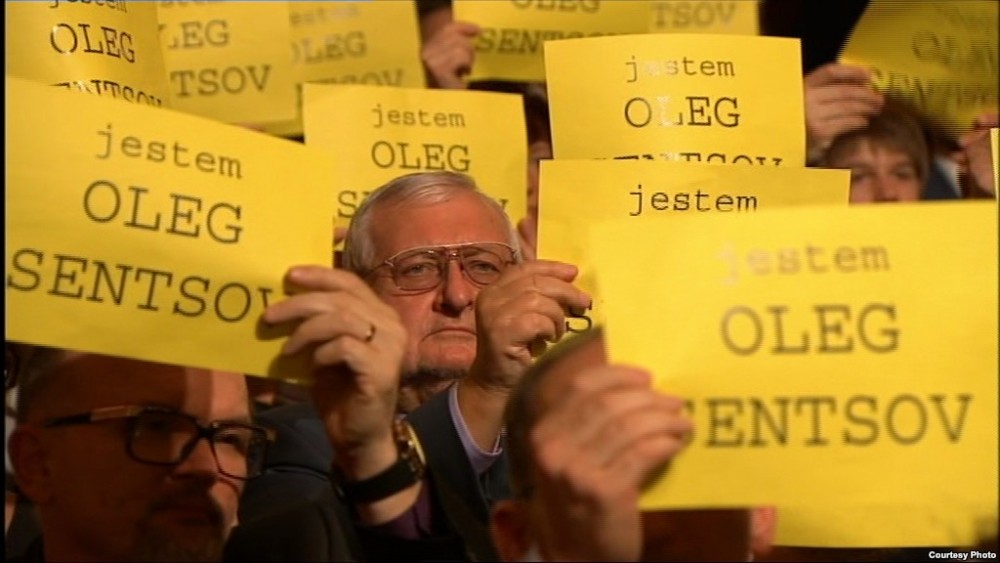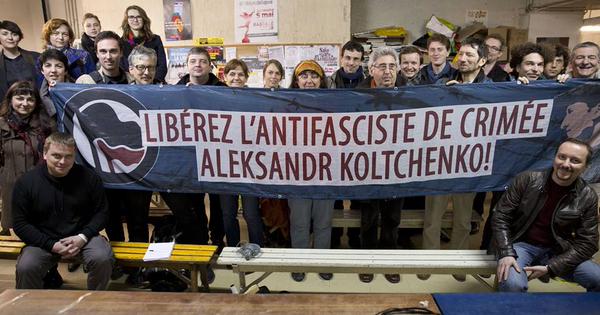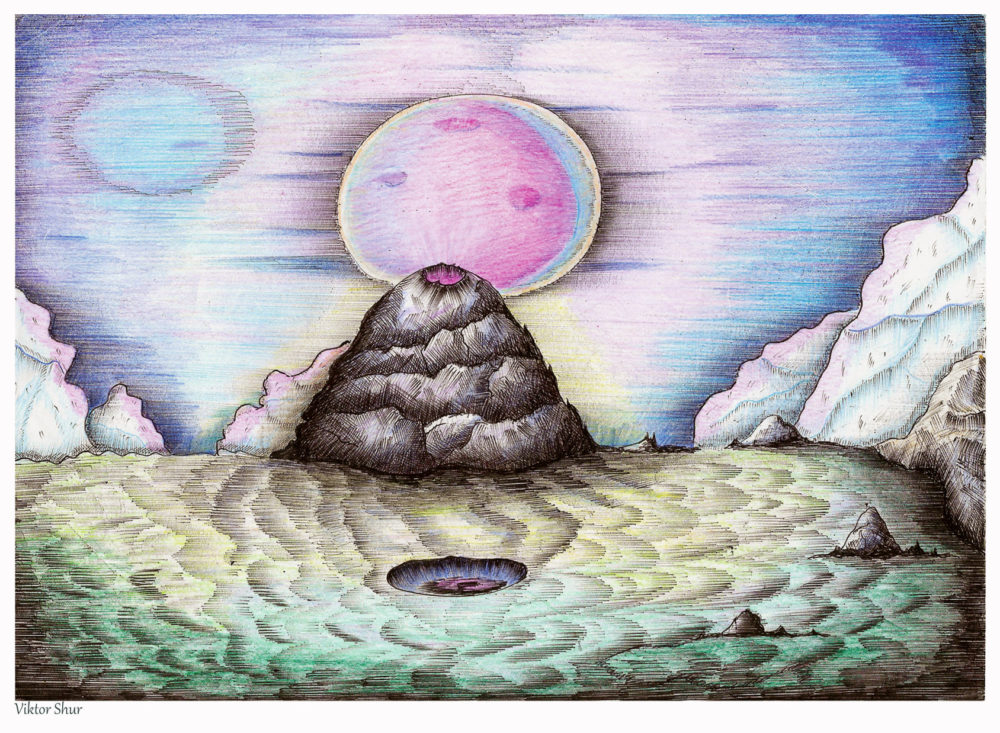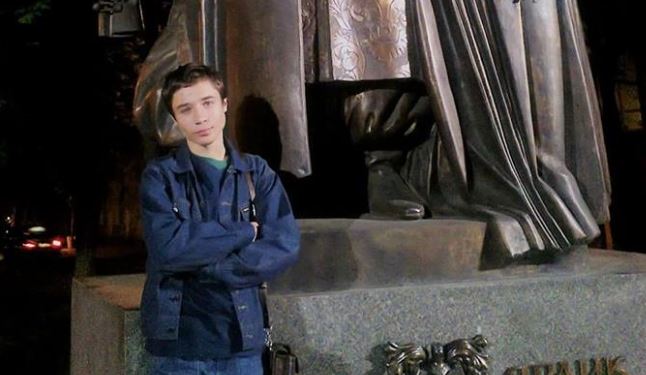On 25 August 2015, Ukrainian film director Oleh Sentsov was sentenced to 20 years of prison and anti-fascist activist Oleksandr Kolchenko to 10 years of prison. Human rights experts have called the case a "show trial of opponents" and likened it to Stalinist trials of the times of the most bloody repressions of the USSR. Here is the case in a nutshell.
1. Sentsov and Kolchenko are Ukrainians that were arrested by the Russian FSB in May 2014 shortly after Russia's occupation of Crimea

Oleh Sentsov was arrested on 11 May 2014 shortly after the Russian occupation of Crimea, Oleksandr Kolchenko was arrested 5 days later on May 16. Since then, they have been tortured and imprisoned for over a year. Both men were Crimeans and opposed Russia's illegal annexation of the peninsula. Sentsov was a Euromaidan activist delivering food and supplies to Ukrainian servicemen blockaded in their bases. Oleksandr Kolchenko was a student and left-wing activist that supported the territorial integrity of Ukraine during the Russian occupation. Russian authorities initially claimed Kolchenko and Sentsov “automatically” became citizens of Russia after the annexation of Crimea. Both denied applying for Russian citizenship. Sentsov said he was “not a serf to be transferred together with land.”
2. They were accused of "plotting acts of terrorism" and being part of a "Right sector terrorist group"
The prisoners are accused of committing acts of terror such as setting on fire pro-Russian parties’ offices, and of being part of a “Right Sector terror group” supposedly led by Oleh Sentsov. These accusations are based entirely on testimonies of Henadiy Afanasiev and Oleksiy Chirniy, who were also arrested and charged with participation in the same group. After holding Sentsov without charges for three weeks a statement by Russia’s Federal Security Service accused the four Ukrainians of being “part of a terrorist community, to carry out explosions with home-made devices on 9 May 2014 near the Eternal Flame memorial and Lenin monument in Simferopol and to set on fire to the offices of the Russian Community of Crimea public organization and the United Russia party branch in Simferopol on 14 April and 18 April 2014.”
3. The accusations are based on testimonies given under torture
The accusations against Sentsov and Kolchenko are based entirely on testimonies of Henadiy Afanasiev and Oleksiy Chirniy, who were also arrested and charged with participation in the same "terrorist group." Both Afanasiev and Chirniy have stated they were tortured by FSB, and after their "confessions" are facing the least possible punishment for terrorism, 7 years of jail, whereas Sentsov, the "leader" of the "terrorist group," is facing 23 years. On 31 July 2015 Afanasyev retracted his testimony as given under duress. After that he was beaten again in prison. Sentsov and Kolchenko have stated repeatedly that they were tortured and beaten, and there is nothing to assume that the same didn't happen to Chirniy.
4. Human rights watchdogs claim the case is a return of Stalinist show trials in Russia
The “Right sector” terror accusations made by FSB make no sense. Right sector is a Ukrainian far-right movement, while Kolchenko is a left-wing anti-fascist social activist. There’s no evidence to link the prisoners to Right Sector, which is Russian media’s favorite boogeyman. This forced prosecutors to retract Right Sector accusations, now claiming the group just “took on the ideology.” Memorial, a renowned Russian human rights organization, assumed "that Right Sector is being foisted on the indictment in order to create a primitive media image of a nationalist threat in Crimea.”
The trial being entirely based on forced testimonies, the alleged plot to blow up Lenin’s monument in Simferopol, Crimea, and the convoluted connection to Right Sector speak of a return of Stalinist show trials in Russia, according to Russian and Ukrainian human rights watchdogs.
5. Sentsov, Kolchenko, and Afanasiev have been declared political prisoners
Memorial had declared Sentsov and Kolchenko political prisoners on 2 August 2015, explaining that the case been seen as political by human rights groups from the outset and accompanied by flagrant breaches of human rights and international law. Afanasiev was also enlisted as a political prisoner following his retraction of his testimony as given under duress. Both Memorial and Amnesty International have called for the charges against Kolchenko and Sentsov to be dropped.
6. The crimes which they are accused of are never classified as "terrorism" in Russia
One thing that united the men was their staunch opposition to Russia's annexation of their homeland, of which the United Russia party was an active player. Kolchenko, Chirniy, and Afanasiev admit to involvement to firebombing United Russia offices, but in all cases the acts carried no significant damage.
There are numerous cases of arson of United Russia party offices and administration buildings across Russia. These are never charged as acts of terror, the perpetrators instead being convicted for hooliganism/arson and getting as little as two years in prison.
7. Filmmakers and anarchist groups have called to release Sentsov and Kolchenko
Prominent European filmmakers, including Wim Wenders, Stephen Daldry, Agnieszka Holland and Mike Leigh and 2015 Oscar winner Pawel Pawlikowski, called on the Russian government to release Sentsov. The call for Sentsov’s freedom was joined by prominent Russian filmmaker Nikita Mikhalkov, Putin’s election agent during the 2012 presidential elections and a staunch supporter of the “Russian world”.
Anarchist groups across Europe and beyond launched a solidarity campaign with Oleksandr Kolchenko and held solidarity actions in Berlin, Bremen, Kyiv, Moscow, Minsk, Paris, Strasbourg and Warsaw.







